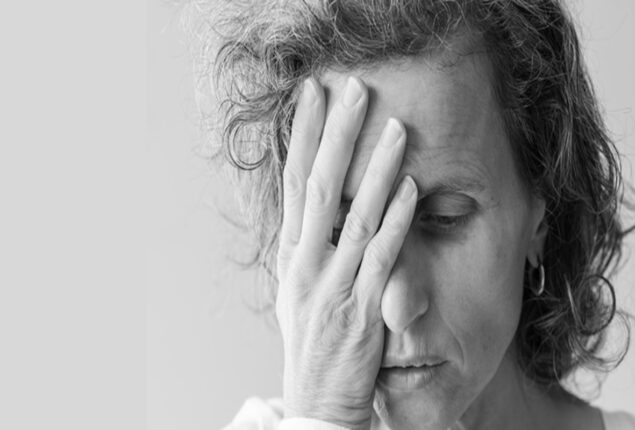Historical launch of Pakistani herbal seeds into outer space praised
The hybrid seeds, prepared at the ICCBS. CMSA had launched Pakistani herbal...

Study: Depression strikes one third of stroke survivors
The American Stroke Association, a division of the American Heart Association, says that stroke survivors frequently experience depression.
One-third of stroke survivors experience depression, compared to 5% to 13% of people without the condition, according to a scientific statement from the Association. If left untreated, it can make stroke recovery more difficult and lower quality of life.
Sen. John Fetterman, who suffered a stroke in May 2022, has requested in-hospital treatment for depression, according to statements from his office.
This has led to inquiries about stroke and depression from the media and the general public.
According to Lee H. Schwamm, M.D., FAHA, a neurology professor at Harvard Medical School in Boston and an American Heart Association volunteer, “depression following a stroke can be a normal psychological reaction to the stress of the injury, disability, or brush with mortality brought on by the stroke.”
In other instances, brain structural, electrical, or biochemical changes may be to blame. Survivors of strokes may experience symptoms similar to depression, anxiety, or post-traumatic stress disorder (PTSD) if certain brain regions are damaged, disrupting the systems that control emotions.
Among the many conditions that can harm the health of the brain, depression and stroke are two examples. Life’s Essential 8 from the American Heart Association is a potent tool for preserving brain health and promoting healthier, longer lives.
Schwamm, who served as a volunteer chair of the American Stroke Association Advisory Committee in the past, advises stroke survivors who suffer from depression to see a qualified professional for evaluation and treatment.
Self-care is essential because stroke can affect sleep, eating, continence, and other bodily functions. This means talking to friends and family for emotional support and getting over the stigma of asking for help.
Unfortunately, many stroke survivors are reluctant to seek assistance and may require additional support to recognize depression symptoms and seek treatment due to the social stigma and shame associated with both conditions.
Counseling, medication, stress reduction, and regular exercise can all be helpful, as with all forms of depression. Depression is a serious health condition that must be treated promptly and effectively.
Not only does treating depression boost mental, physical, and cognitive recovery, but it also improves mood. According to a number of studies, depression is associated with lower levels of social support.
A stroke survivor’s mental long-term wellbeing can be improved by receiving support from family, friends, a stroke support group, or a combination of these resources. This support can also be an important part of a treatment plan for post-stroke depression.
Catch all the Health News, Breaking News Event and Latest News Updates on The BOL News
Download The BOL News App to get the Daily News Update & Follow us on Google News.